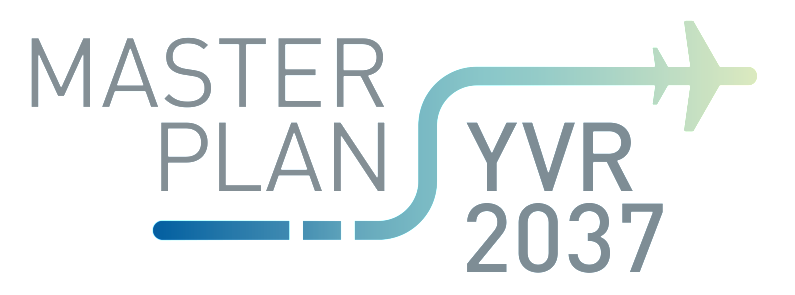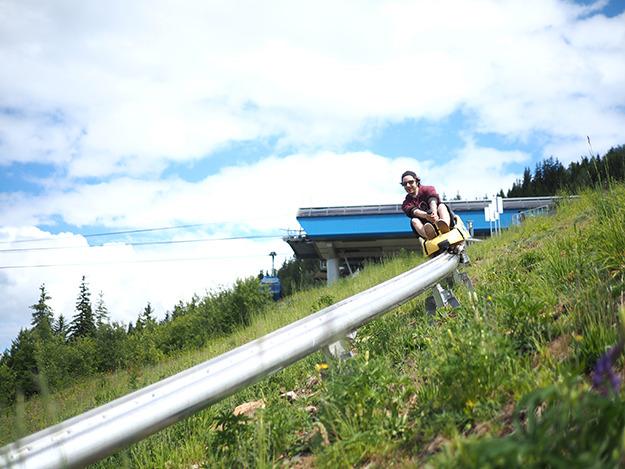|
Voice of the BC Tourism Industry
|
|
|
Harvest time at Tinhorn Creek Winery
|
|
|
CEO's Message

Traveling around the province this time of the year to attend regional or sectoral conferences to meet with members and stakeholders is always a tremendous learning opportunity for me. Obtaining a first-hand account of what's happening in communities helps to inform TIABC's policy priorities for the foreseeable future.
Similarly, when our board and staff hear from readers of this newsletter or through survey responses, it helps us to focus on what's most important and relevant to the industry.
As I've mentioned before, while we've made significant progress on multiple files, we remain determined to find solutions to issues such as short-term rental accommodation, formula funding, labour shortages, ride-sharing, campground taxation, and others. But we can't do it alone and I'm urging our industry partners to take action alongside TIABC on several fronts.
To that end, I've taken the liberty to develop a
Top 10 List of Actions (in no particular order) and am asking you to help TIABC advance various initiatives (some of these you may already be doing) for the benefit of British Columbia's visitor economy.
- Write your local MLA to request that government eliminates Regulation 78 (1)b that exempts accommodation providers of less than four rooms from paying PST and MRDT (see more in next article below);
- Contact your local MLA to encourage them to move now on performance-based, formula funding for Destination BC which has still not materialized some three years after government's commitment;
- Connect with your local mayor and council to offer insight on tourism performance within your company and community. In particular, impress upon them the role and importance of destination marketing organizations in contributing toward the success;
- As we continue to promote the value of tourism to all levels of government, send us a 30 second video clip (filmed on your smartphone) that tells us why tourism is important to your community, your business, your family, or to students considering a career path to pursue;
- Complete TIABC's brief survey that gives us our marching orders for Q4 and 2017;
- Vote for your preferred workshop sessions at the 2017 BC Tourism Industry Conference (survey to be launched within the next 10 days);
- Contact any one of TIABC's 13 board members or staff to inform us of key stats, developments, issues or other information to share with industry and decision-makers;
- Invite a member of TIABC's board or staff to attend a meeting, special event or tourism gathering in your community to ensure we remain informed and engaged with all tourism stakeholders throughout the province;
- Recommend TIABC membership to your professional colleagues so that we can continue to represent all regions of BC, as well as all types of tourism businesses and sectors; and
- Call or email me and let me know how your business, DMO or sector has fared so far this year...the good, the bad and everything in between.
I recognize that time is a precious commodity. But even completing one action (pick one) will help us move various initiatives along. We look forward to hearing from you.
Walt Judas, CEO
778-953-0620
|
One of the major obstacles to attracting tourism workers to communities around British Columbia is the lack of available and affordable housing. Already, several cities and towns are reporting virtually zero vacancies contributing to the inability of employers to recruit enough employees to meet their needs. The ramifications are serious...unsatisfactory service levels for guests, over-worked staff and an impact on corporate or community reputation, among other things.
A major contributor to the low vacancy rate is the proliferation of unlicensed short-term visitor accommodation that has taken more permanent rental units off the market. While short-term rentals (STRs) are a recognized form of visitor accommodation and can be a benefit to communities lacking more traditional accommodation units (e.g. hotels, motels, B&Bs), the impact to cities, towns, regions, and even neighbourhoods has been profound.
One of the tools necessary to 'level the playing field' and return some STRs back into the rental pool is through local regulation and enforcement, as well as a regulatory framework that allows for the collection of taxes...the same taxes that hotels and other accommodators provide.
In early November, caucus is meeting to determine priorities for the remainder of 2016 with a view to the months leading up to the May 2017 election. We need to ensure that tourism industry concerns, such as STRs, are part of the agenda.
More specifically, TIABC and several communities and tourism sectors are calling on government to eliminate Regulation 78(1)b that exempts purveyors of less than four rooms from paying PST and MRDT, the latter of which supports tourism marketing.
The current regulation prevents platforms such as Airbnb, FlipKey and others from collecting the requisite taxes at source, unlike what Expedia and Travelocity must do when visitors book through these similar accommodation platforms.
If STRs are an issue in your community,
write your local MLA...or better yet, ask your mayor and council to write government to request the elimination of Regulation 78(1)b. Time is of the essence. We're aiming for
30 letters or emails by October 30th. Please be sure to cc TIABC in any correspondence.
Thank you!
|
TIABC Member Tinhorn Creek Winery Wins Gold for Safest Employer in Hospitality!
|
|
 |
| Sandra Oldfield, Tinhorn Creek CEO accepted the Gold Award for Canada's Safest Employer in Hospitality |
 |
Tinhorn Creek Vineyards is thrilled to announce that it has received
Canada's Safest Employers Award
, 2016 in the
Hospitality category
. The award recognizes companies from across Canada with outstanding accomplishments in promoting the health and safety of their workers.
"We are truly honoured and proud to receive this accolade," says Tinhorn Creek Vineyards' CEO & President Sandra Oldfield. "The award is a huge accomplishment, our winery is small in comparison to others who have won this award in previous years and our business operations are wildly diverse." From vineyard farming to winemaking production, outdoor events, guided hikes and summer concerts, Tinhorn Creek welcomes some 60,000 visitors a year who want to see it all up close.
The company's rigorous health and safety programs have to address broad concerns including things like over consumption, rattlesnake encounters, heat stroke and tractor safety. "We live in the stunning Okanagan Valley of British Columbia; where land is expensive and so are the grapes but I can tell you unequivocally, it is our people that are our most valued resource" says Oldfield, noting "the health and safety of all of our employees is one of our top priorities and we wouldn't be here today if it wasn't for the hard work and dedication they show every single day."
Earning Canada's Safest Employers Award today marks another important milestone for the winery and their aim to make a difference in the work place through putting people first. Sandra's hope is that Tinhorn Creek being recognized in this way will spur other wineries to think about their safety programs and make changes that benefit employees in the industry.
|
YVR Seeks Input on 2037 Master Plan
Share Your Input 
If you haven't done so already, YVR encourages you to submit your input and comments by completing the
YVR 2037 online survey
. The deadline to complete and submit the survey is October 31, 2016.
|
Destination Canada's 2016-2020 Corporate Plan

Canada has great capacity and potential to attract 20 million international visitors, spending $20 billion in Canada by the year 2020.
Destination Canada's 2016-2020 Corporate Plan Summary: Seizing the Winning Conditions for Canada features a unified approach with industry to harness the winning conditions that will increase visitation, market share, investment and economic growth. The 2016 - 2020 Corporate Plan summary details three corporate objectives to support the continued growth of Canada's tourism industry:
- Increase demand for Canada with innovative marketing;
- Advance the commercial competitiveness of the tourism sector;
- Increase corporate efficiency and effectiveness.
Destination Canada will meet these objectives with several important activities, including
Connecting America, the
Millennial Travel Program and by implementing a series of performance measurements that will increase transparency and accountability for the shareholder and the industry they serve.
To find out more, view the
|
Wildfire Prevention Survey
Wildfire in the wildland-urban interface is an increasing problem facing communities in British Columbia. The purpose of this survey is to better understand the views of municipalities, regional districts, First Nations communities and reserves regarding plans and actions toward wildfire prevention. UBC is interested in the perspectives of decision makers, planners or managers (e.g.,Chief Administrative Officers; public safety or emergency services coordinators, foresters, land managers etc.) working at the level of individual communities (e.g., within regional districts, one survey should be completed per community or for a representative community).
|
Lonely Planet Names Canada
Best Country to Visit in 2017
Lonely Planet has named Canada its top destination for travellers in 2017,
ahead of second-place Colombia and Finland, which ranked third.
The magazine's 58-page chapter on Canada hails it as a land of "endless variety," with diverse landscapes, great food, captivating cultures and fantastic art.
The chapter lists 25 great places to visit in Canada, with four western locations listed at the top. B.C.'s Haida Gwaii was the No. 1-ranked destination in the country, followed by the Rocky Mountains, Nahanni Territorial Park Reserve in the Northwest Territories, and the city of Vancouver at No. 4.
The list is rounded out by a number of attractions in various parts of the country, as well as a few multi-province sights, like the Northern Lights, the Trans Canada Highway and the foliage in autumn.
All this just in time for the beginning of Canada's 150th anniversary celebrations!
|
2017 marks
Canada's 150th anniversary of Confederation
and to celebrate this generational event the Government of Canada is providing funding to several national, regional and community based projects. These projects are
excellent partnering opportunities
for our industry to
maximize the tourism impact
of the sesquicentennial.
The celebration of the 150th anniversary of Confederation begins with a bang with the Canada 150 Kick Off on December 31, 2016.
Canadian communities are at the heart of the Canada 150 celebrations. The Government of Canada is supporting community projects across the country that will offer unforgettable opportunities at local and regional levels. Our rich local cultures will be showcased, satisfying visitors' need for authentic experiences, one of today's key tourism trends. Get involved with local organizations and support projects that will make your community shine. Find out about the activities in your area by visiting the
Canada 150 website, with more to come!
#Canada150
|
Recently, on the occasion of World Tourism Day 2016 participants adopted the
Bangkok Declaration on Tourism For All, a document resulting from a consultation process involving governments, the private sector, civil society organizations and accessibility experts.
The Declaration calls upon all stakeholders to advance policies and business actions that promote universal accessibility, including training, awareness raising as well as considering Universal Design in all new tourism infrastructure and services and while adapting existing ones.
About 500 delegates from 60 countries convened in Bangkok, Thailand, to take part in the Official Celebrations of the World Tourism Day - this year dedicated to the theme 'Tourism for all: Promoting Universal Accessibility.'
During two days participants from 60 countries exchanged best practices and experiences on accessible tourism and have committed to advance universal accessibility in all components of the tourism value chain to ensure all citizens enjoy the benefits of travel, whatever their abilities may be.
#tourism4all
|
|
#BCTourismMatters
Revelstoke Sees Huge Increase in V
isitors Numbers
For years, one of the big debates in Revelstoke has been, "How do we get people off the highway?"
 Thousands of people drive through town on the Trans-Canada Highway every day, but most of them either zip on by, or don't make it past the railway overpass on Victoria Road.
All sorts of ideas have been proposed but, it turns out, Revelstoke Mountain Resort (RMR) found the answer: The Pipe, a three minute coaster ride down the lower portion of the resort.
"We've already passed 100,000 unique visits for summer operations this year," said Peter Nielsen, RMR's vice-president of operations. "
We're more than double our projection for year one."
There's no doubt the coaster boosted visitor numbers, but how much is the question. Revelstoke has seen increases in tourism since RMR opened in 2007, but this summer's numbers are undoubtedly higher than usual, and the growth is beyond previous trends.
The Future is Bright for Cruise in Prince Rupert
2016: 12 ships and 7,264 passengers vs. 2017: 25 ships 16,722 passengers
A cruise working group with nine members including the Port of Prince Rupert, Tourism Prince Rupert and the Prince Rupert and District Chamber of Commerce commissioned a report to determine the areas where the region can improve to attract more cruise lines.
The cruise industry dipped in 20
08 during the U.S. recession and has since found a steady recovery in the last two to three years in Asia, Europe and Alaska. Prince Rupert hasn't seen the same bounce back and the working group turned to a cruise consultant to find out why that is.
The feedback revealed passengers who don't join a shore excursion, such as the grizzly bear tour in the Khutzeymateen or a flight sightseeing tour, had a poor independent experience.
Prince Rupert's shore excursions have been rated one of the highest among the Alaskan ports of call, including Juneau, Skagway and Ketchikan. The issue is that there is a low capacity for these excursions.
In 2015, there was a small excursion base with nine tours operated by six different companies with a program capacity of about 500-600 passengers.
When larger ships arrive with 2,500 passengers only a portion of the tourists have the opportunity to join an excursion.
A cruise working group plans to hold a workshop to help entrepreneurs and businesses in the area maximize their advantage and to be a part of the solution in improving the cruise ship industry.
|
|
Research
Almost four million international visitors to B.C. in 2016
Year-to-date figures show an 11.5% increase in international visitors over the same time period last year (January to August). That represents close to four million total overnight international visitors (3,990,574) that came to B.C. during the first eight months of this year.
In August alone, 789,783 international visitors came to B.C., a 7.5% increase compared to August 2015.
Other notable increases for August include:
- U.K. - up 32.1%
- Australia - up 28.8%
- Mexico - up 22%
- Japan - up 19.8%
- Europe - up 17.6%
- South Korea - up 10.4%
- China - up 10.2%
- United States - up 3.9%
There are a number of factors contributing to the growth in visitor numbers, including increased air access and capacity to Vancouver, a low Canadian dollar and Destination BC's new international marketing strategy.
The growth of overnight entries from Mexico, the U.K. and China is partly due to increased air access. For example, China has a new three-times-per-week flight on Xiamen Airlines which was introduced between Xiamen Gaoqi International Airport in China and Vancouver in late July. Air China also introduced an additional three flights per week for August and September. Each new daily international flight to Vancouver International Airport (YVR) creates between 150 and 200 new jobs at the airport, plus more jobs in B.C.'s hotels, tourism attractions and businesses. The new flights are thanks, in part, to a 2012 international jet fuel tax eliminated by the Provincial government to reduce costs for airlines and give travellers more choice.
Record Breaking Summer for Overseas Arrivals to Canada
Canada welcomed over 8.5 million international visitors this summer, including a record breaking 2.5 million overseas arrivals. Visitors from 10 of Canada's 11 international markets were up double digits in August 2016 over August 2015 - a great sign of how well our tourism industry is performing.
|
|
|
In This Issue
|
CEO's Message
Industry News
#BCTourismMatters
Calendar of Events
|
|
Calendar of Events
|
October
BC Liquor Conference
November 29-30, 2016
February 22-24, 2017
Victoria, BC
BCHA / ABLE BC
April 3 & 4, 2017
Victoria, BC
Visit TIABC's
Event Calendar for more events. Tell us about your event and we will add it to the list.
|
|